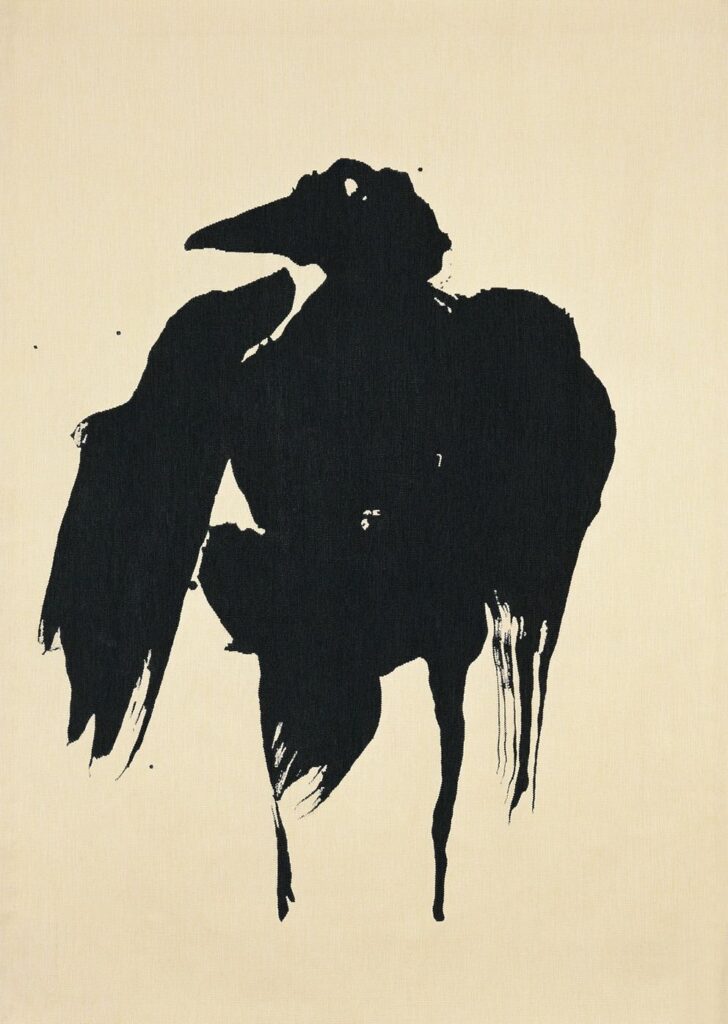
Defense of Women’s Sovereignty – A Poem for Ríon Medb
A couple meets at river’s Ford1
But once a year for prophecy,
They come together as they will;
Each year they choose their ecstasy.
Their love unbound, and glorious lust
Their work and joy for seeing far,
To guide their people, find the ways
Of keeping them from painful scars.
At Samhain She saw an attack –
In danger Women’s Sovereignty,
Man’s laws far greater than their cocks
To bind their women monstrously.
Yet Sovereignty would not be stopped
Nor from a course of action turned,
And so She drove a heifer out2 –
For Women’s Freedom anger burned.
She drove the cow to Ulster – There
To breed her with Donn Cuailgne’s bull,
And set up pillow talk3 between
Queen Medb and husband Ailill – Full
Of pride and anger at her strength
He rolled out all his wealth and fame
And tried to elevate himself
Above her own most queenly name.
But thanks to Keen-Edged Mórrígan,
And Cold-Wind Dagda guarding Her,
A brown bull lived in Cuailgne far
To counter Ailill’s princely slur.
She sent a messenger with word,
With offer true for bull to rent,
A year to keep and in return
A fair Right Portion would be sent.
But when a drunken messenger,
Who had one job: To ease the way,
Made boasts and claims which found the ear
Of Dáire mac Fiachna to sway
The deal was off and war ensued,
A Táin to prove her right to rule,
Though peace she sought, she could not find
Another way to counter Fool.
Cú Chullain then was given chance
To step up – be the rightful Rí.
Fiachna’s folly could be stopped
With Chieftain’s Hospitality.
But off he threw the offer fair
To marry Sovereignty and lead,
Too busy was he fighting duels
A woman’s voice to ever heed.
Then Fergus could have helped her on,
The Táin would be a simple raid,
For Ulster’s men were under curse
And under women’s pain they laid.
But no, he would not see the way
To break allegiance of his youth,
And led her people far astray
With his evasions and half-truths.
He saw the signs of draíocht strong,
He knew Cú Chullain waited for
An army all alone and drew
Them off to try to transform war
Until the Ullaid joined the fray
Their labor pains now set aside,
But while they cried and rested, Cú
Did face Medb’s champions in his pride.
So many deaths that could have been
Avoided, had they only thought
To renegotiate – because
For women’s equal rights Medb fought.
And if they then had realized
That women always equalled men
Then never needed Táin to prove
What women’s nature’s always been.
So now we read the Táin and think
“She went to war for sake of cow,”
And patriarchy forces us
To never reframe why or how
It was that pillow talk could make
A Chieftain seeking peace, not war
To see so many die – a raid
Preventable! Except before
That could be done, the men would have
To see a woman’s equal worth
And now in times where equal rights
Are up for battle ’round the earth
Take heed from Medb of Connacht brave,
And do not suffer foolish men
To steal a woman’s right to choose
And plunge us into war again.
But stand firm as our Ríon showed
And now choose peace while yet we can
Do not allow the cowards’ choice
To alter fate – fight hard, defend
All people’s rights to choose to live
In freedom, women equally
To men, and do not folly show
By binding Women’s Sovereignty.
Dunta
This poem is inspired by various places in the lore of ancient Ireland. Notes on the various places for reference are as follows:
1The meeting of The Mórrígan and The Dagda at the Ford of the River Unshin once a year is found in the Cath Maige Tuired. An alternate name for this place is “The Bed of the Couple,” and it references them meeting there once a year. In the Cath Maige Tuired specifically, The Mórrígan gives a prophecy about the upcoming battle with – and subsequent victory over – the Fomorians.
2In the Táin Bó Regamna, a remscela or prelude to the Táin Bó Cuailgne, we see The Mórrígan driving a cow through Ulster. She has just bred the cow, which sets up the birth of the focus of the Táin Bó Cuailgne, and is confronted by Cú Chullain. The man at her side is sometimes thought – and the author here agrees – to be The Dagda. The Dagda, as warrior and poet and husband of The Mórrígan, is a logical choice to be traveling with her on important prophetic business. The translations of two of their names comes from the translation of the Táin Bó Regamna by Morgan Daimler, found here: https://lairbhan.blogspot.com/2015/03/tain-bo-regamna.html
3The infamous “pillow talk” between Ríon Medb of Connacht and husband Ailill sets up the events in the Táin Bó Cuailgne. The versions the author prefers are the seminal version by Thomas Kinsella, and the more recent one by Ciaran Carson. Both are exquisite in their own rights, and the rest of the lore described from the Táin come from readings in those two books.
Image by Louis le Brocquy, commissioned for the Thomas Kinsella 1969 translation of the Táin Bó Cuailgne, with the original piece on display in the Irish Museum of Modern Art. This image is titled “The Morrigan in bird shape” and is part of their permanent collection.